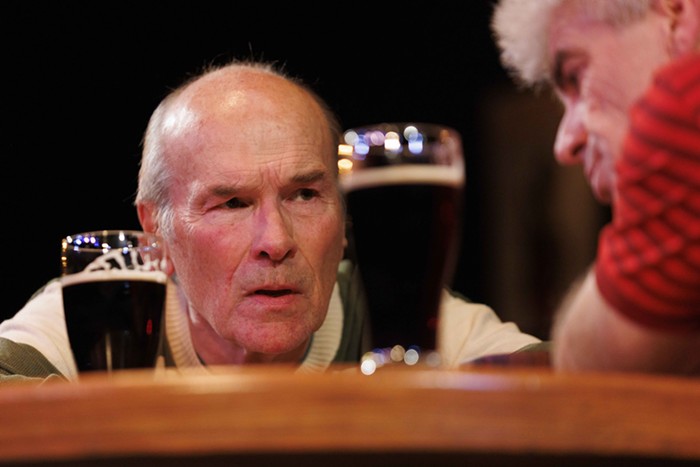Third Rail's world premiere of local playwright Ebbe Roe Smith's Number Three is funny, disturbing, and stylistically compelling: It takes a cartoonish, over-the-top look at a stereotypical 1950s' household, in which Dad (Scott Coopwood) is a military man with a violent temper and Mom's (Maureen Porter) attempts to keep up appearances are hampered by the fact that she's a bit of a drunk. Their three kids respond to their environment in predictable ways: The eldest girl, Sis (Val Landrum), tries to maintain order and pines for a family like the ones on TV; Narmo (Michael O'Connell) is the quintessential troubled and cruel middle child; and Shreynoo (Tim True), the youngest, copes with his unstable family by escaping into his own fantasy world. Hyper-stylized violence, a bright set, and Loony Tunes sound effects create an unsettling juxtaposition between the cartoonish environment and the entirely realistic effects that dysfunctional parenting is having on the three children.
In most regards, it's a wonderful production. Third Floor delivers everything they've become known for: note-perfect performances; engaging, effective technical design; and thoughtful direction. From Scott Coopwood as the unstable, hopped-up dad down to Tim True's imaginative, not-all-there youngest son ("Number Three"), the actors expertly embody stereotypical characters without ever becoming two-dimensional caricatures.
There's a problem, though. Unlike the sitcoms that Number Three references, there's no narrative arc here. Number Three simply goes for a while, and then it stops. And while that may be the point—that childhood doesn't have a narrative arc, that your parents fuck you up until you're old enough to leave home and that's all there is to it—it isn't conveyed in a particularly effective matter (if that's not the moral of the story, then I give up).
The idea that there's something rotten in the state of Americana is not a new one. Number Three is twisted and engaging, and offers some great moments, but there's a "so what?" quality to the writing that keeps it from being fully satisfying. As a piece of theater, it ranks among the best Portland has to offer—but for all its wit and panache, as a piece of writing, Smith's script leaves something to be desired.


















